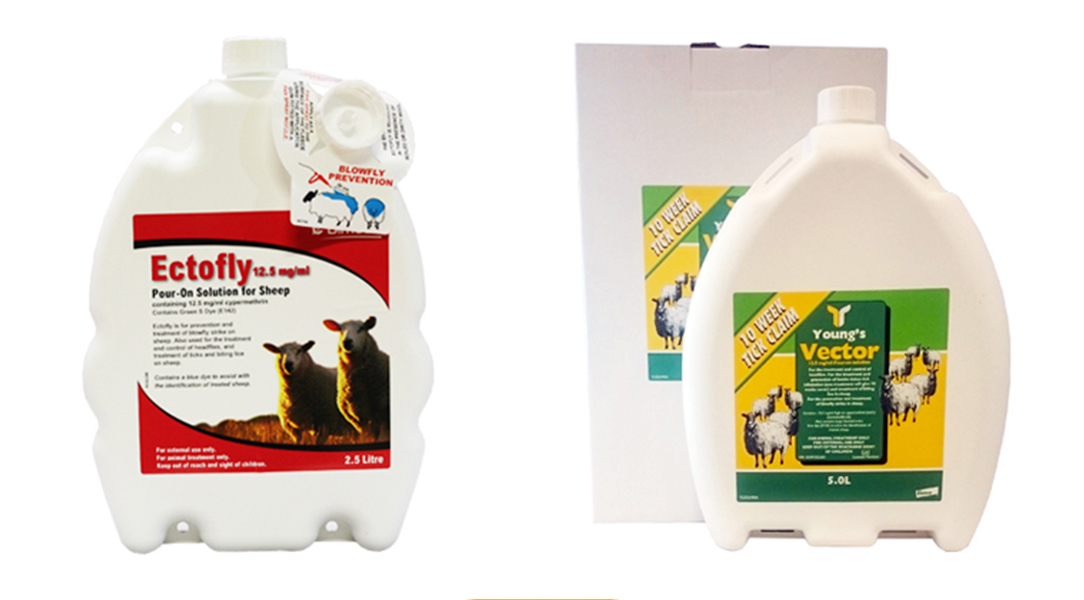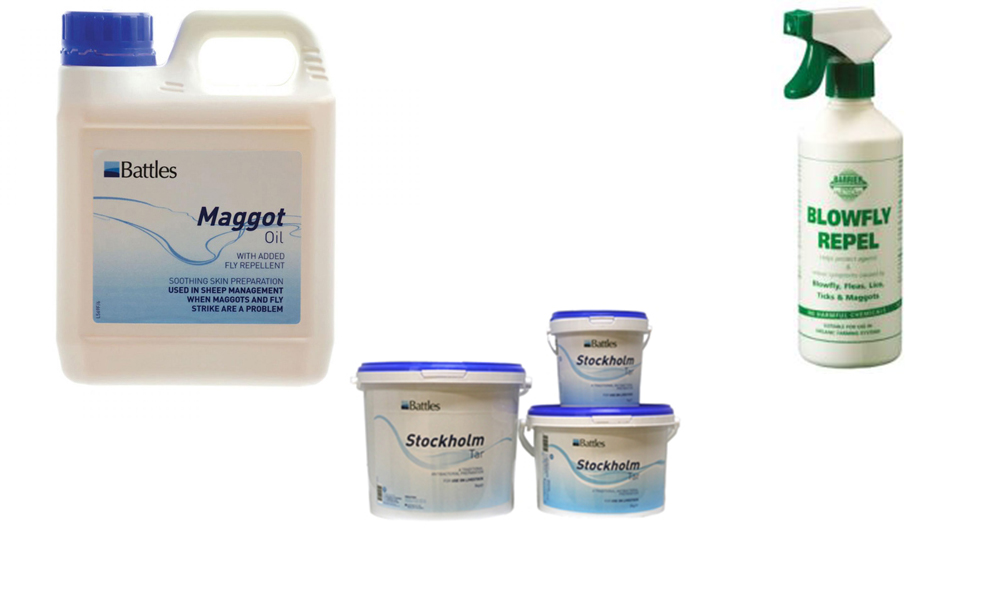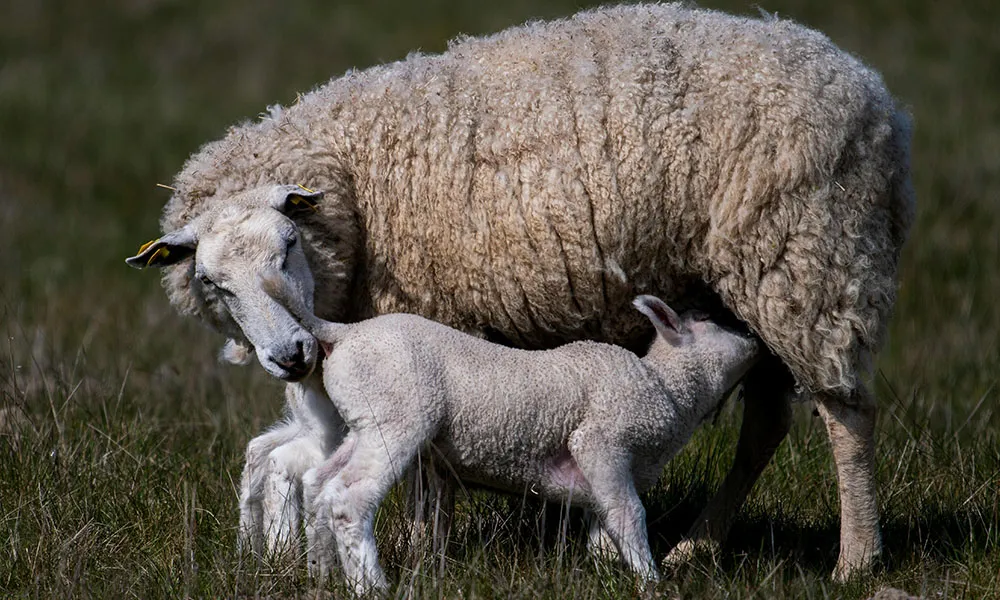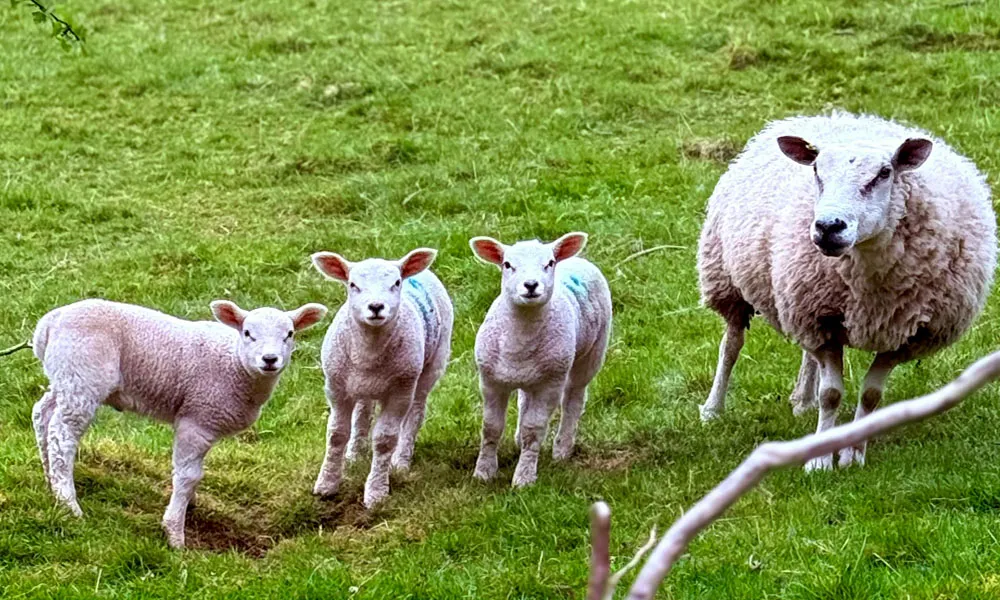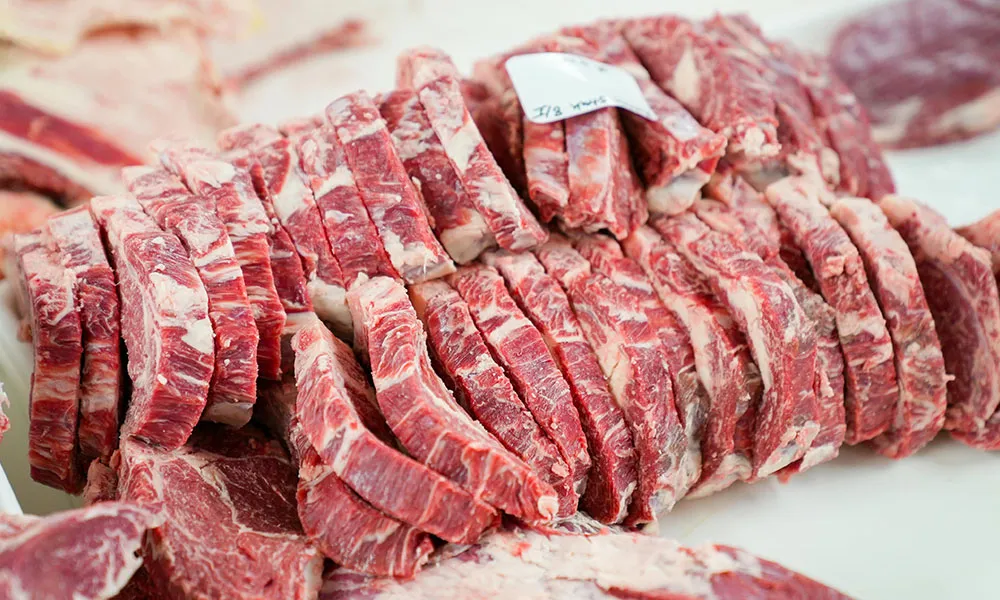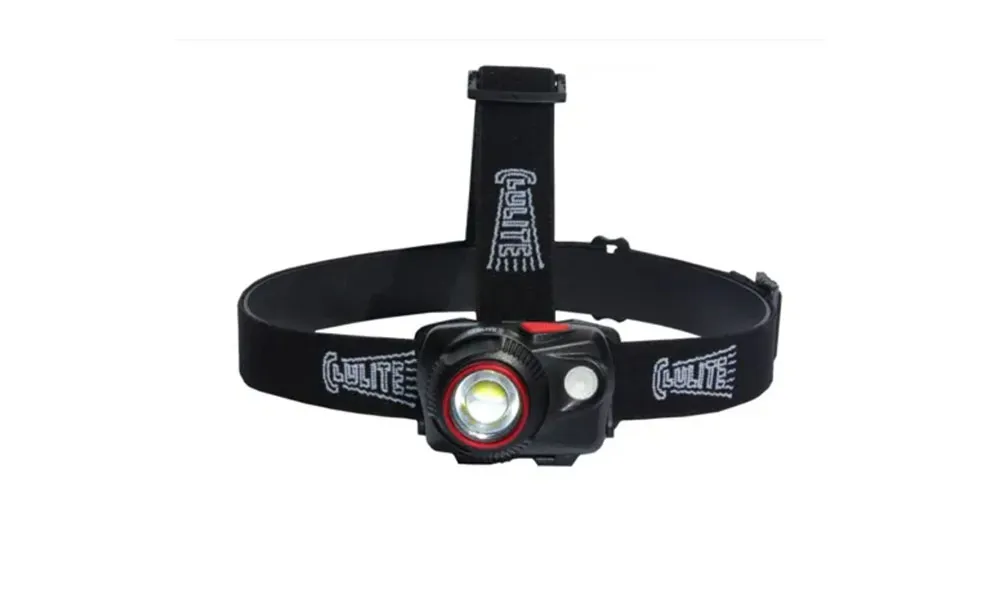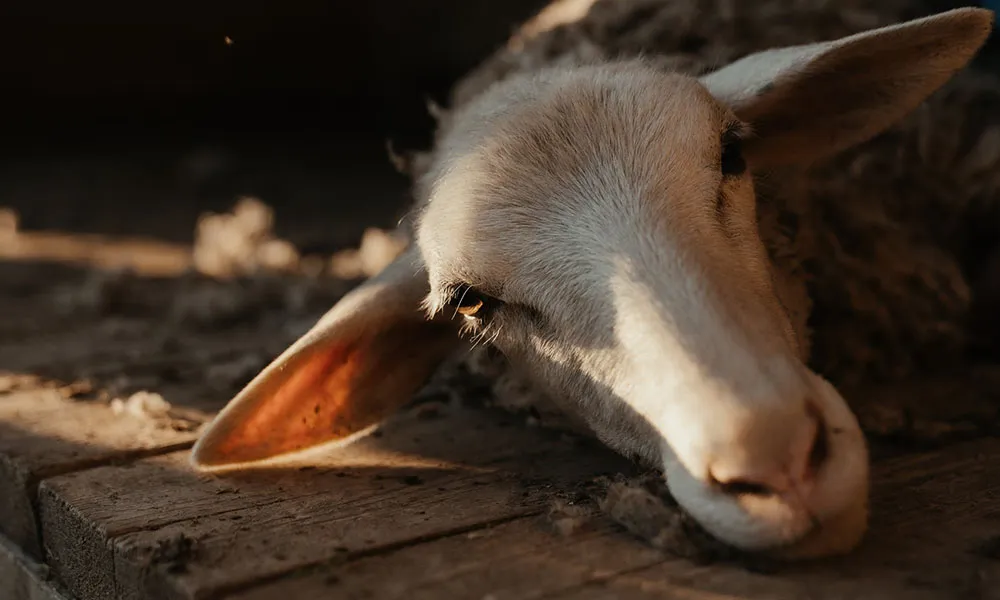
Agridirect.ie discuss the ongoing blowfly epidemic in Ireland’s sheep flocks, as the country struggles under extreme humidity.
Maggoty weather
When it comes to managing the threat of blowfly strike, the last week or so has brought perhaps the worst possible conditions to large parts of the country. Today, for example, it is a balmy 20° Celsius, but this warmth is undercut by incessant rain and general murkiness. Such conditions create the ideal breeding ground for the blowfly: namely, heat and moisture. Sheep grazing pastureland at the moment have wet and often dirty wool, which retains heat close to the skin. Eggs laid on a day like this will hatch quickly, and maggots will thrive.
As farmers, we need to take a two-pronged approach to managing blowfly strike. These are:
- Pre-emptive treatment with an appropriate pour-on or dip, to reduce the likelihood of flies lighting and laying eggs on our animals; and:
- Constant vigilance, to ensure that animals suffering with maggots are identified and treated as early as possible in the cycle
Prevention
In terms of prevention, there are a number of products on the market that you can use to keep the blowfly at bay. Here we have provided a guide to some of the most popular and effective products available for purchase.
The Clik Range
Among the most popular products for preventing serious blowfly strike is the Clik range. Here at Agridirect.ie, we stock three products in this range, and you should consider which of these is the best fit for your purposes. The standard Clik Pour-On contains the active ingredient Dicyclanil and is effective at preventing maggots for up to 16 weeks. However, with a withdrawal period of 40 days for meat and offal, this product may not be the right choice for factory lambs. You should also note that the Clik Pour-On is not suitable for use in animals producing milk for human consumption.
Clik Extra is the most powerful product in the range and promises to prevent blowfly strike for up to 19 weeks. It contains the same active ingredient as the standard version and has the same withdrawal period of 40 days. If you are worried about a long and warm autumn and want peace of mind, then Clik Extra might be the best choice for ewes and breeding rams. An application of Clik Extra now will see your sheep covered until well into the winter. By then, the threat of maggots will be non-existent.
And finally there is Clikzin. Clikzin offers a maximum of 8 weeks’ protection against blowfly strike but has a withdrawal period of 7 days for meat and offal. This makes it ideal for kill-weight lambs that you will be selling in the coming weeks. All Clik products should be administered using an applicator gun. The 4-stroke method should always be deployed.
Ectofly and Vector
Other solid choices for preventing blowfly strike are Ectofly and Vector. These are more general-purpose insect repellents, and are used for the treatment and control of ticks, lice and flies. Like Clikzin, they have a 7-day withdrawal period, which makes them ideal for use on factory lambs. Ectofly and Vector contain the active ingredient Cypermethrin and are effective against flies for up to 8 weeks. They should be applied using a purpose-designed pour-on gun.
Summer Dip
Summer Dip is something of an old reliable and is very popular with farmers. This topical-use dip should be combined with a clean bath for best results. It offers lasting protection against blowfly infestation but has a 35-day withdrawal period for meat. Again, farmers should note that it cannot be used on ewes producing milk for human consumption.
Treatment
Despite the general effectiveness of the above products, current weather conditions all but guarantee that you will encounter a case or two of blowfly strike in the coming weeks. In the event of this happening, you should first shear the affected area and remove all maggots from the animal’s flesh immediately. Once this has been done, you need to find an effective way to clean and disinfect the wound, while also ensuring that flies will not light on it again.
A useful first step in this respect is to close the wound using a dab of Stockholm Tar. Alongside this, it is often a good idea to spray some Barrier Blowfly Repel around the infected area, to keep flies away from the area under treatment. Finally, as the wound begins to heal, it is an excellent idea to use some Maggot Oil to encourage healing, while also deterring flies.




